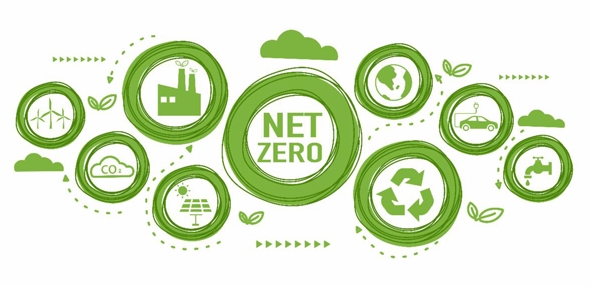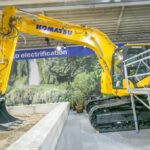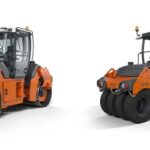
As the market leader in portable air compressors, Atlas Copco Portable Air plays a key role in achieving global climate goals.
As part of the broader Atlas Copco Group initiative, the company is committed to “doing business within planetary boundaries.” With that in mind, it has set a series of ambitious climate science-based emissions reduction goals as part of its Science-Based Targets (SBTi) initiative.
Funded by the IKEA Foundation, Amazon, the Bezos Earth Foundation, the Rockefeller Brothers Fund, the UPS Foundation and many major companies such as BMW, Nike, Daimler and SNCF, SBTi gives companies a well-defined path to reducing CO2 emissions in what it calls a “race to the top” in the transition to zero carbon.
The organization also verifies that a company’s goals are in line with the science of greenhouse gas emissions.
Reducing the entire value chain
Science-based goals are different from other goals because they are absolute reduction goals; they are not tied to the cost of sales, but rather target the company’s entire value chain. It includes emissions from energy consumed in direct operations such as manufacturing, vehicles and offices, emissions from the production of materials or components used in products, and emissions from the use of those products.
Tracking emissions goals by an internationally recognized organization gives Atlas Copco a competitive edge by increasing credibility in the eyes of customers and providing full transparency. More importantly, however, the goals inspire innovation and encourage positive change.
Teamwork
The company currently has an approved science-based goal to reduce emissions from its direct operations by 46 percent by 2030, compared to 2019 levels. Everyone at the company plays a role in this. For example, by how they get to work, what products are developed and what energy is used in the factories.
Atlas Copco’s Portable Air Systems Division’s plan is to achieve zero carbon in all of its operations through green energy in factories, digitally optimized processes, reduced energy consumption, fossil-free fuels, and a zero CO2 fleet.
While it is important to combat emissions from direct operations, a year-long research project by Atlas Copco’s Portable Pneumatic Systems division showed that the greater opportunity for a positive environmental impact comes from the way customers use their solutions. The company found that the majority of emissions were related to product usage throughout the product life cycle.
That’s why Atlas Copco has set a goal of reducing carbon emissions from the products it uses by 28% by 2030 (compared to 2019 levels). One of the paths the company is taking is to move toward carbon-free solutions, such as the E-Air line of all-electric compressors.
E-Air in urban environments
By applying innovation to provide the most efficient and environmentally friendly solutions, Atlas Copco’s Portable Pneumatic Systems division intends to give customers the tools they need to solve complex problems and help them achieve their sustainability goals. In terms of equipment, some compressors will eliminate the need for fossil fuels and make exhaust emissions a thing of the past, such as mobile electric compressors.
Meanwhile, variable speed compressors (VSDs) can be battery- or fuel cell-powered, and their motor operating speed is automatically adjusted (or even turned off) to precisely match the user’s compressed air needs.
For larger projects, mobile compressors are likely to run on hydrogen; or on synthetic fuels produced by converting unwanted gases, waste and by-products.
By developing cutting-edge equipment and revolutionizing its direct operations with carefully controlled scientific goals, Atlas Copco Portable Air is accelerating its movement toward sustainability
Translated with www.DeepL.com/Translator (free version)








